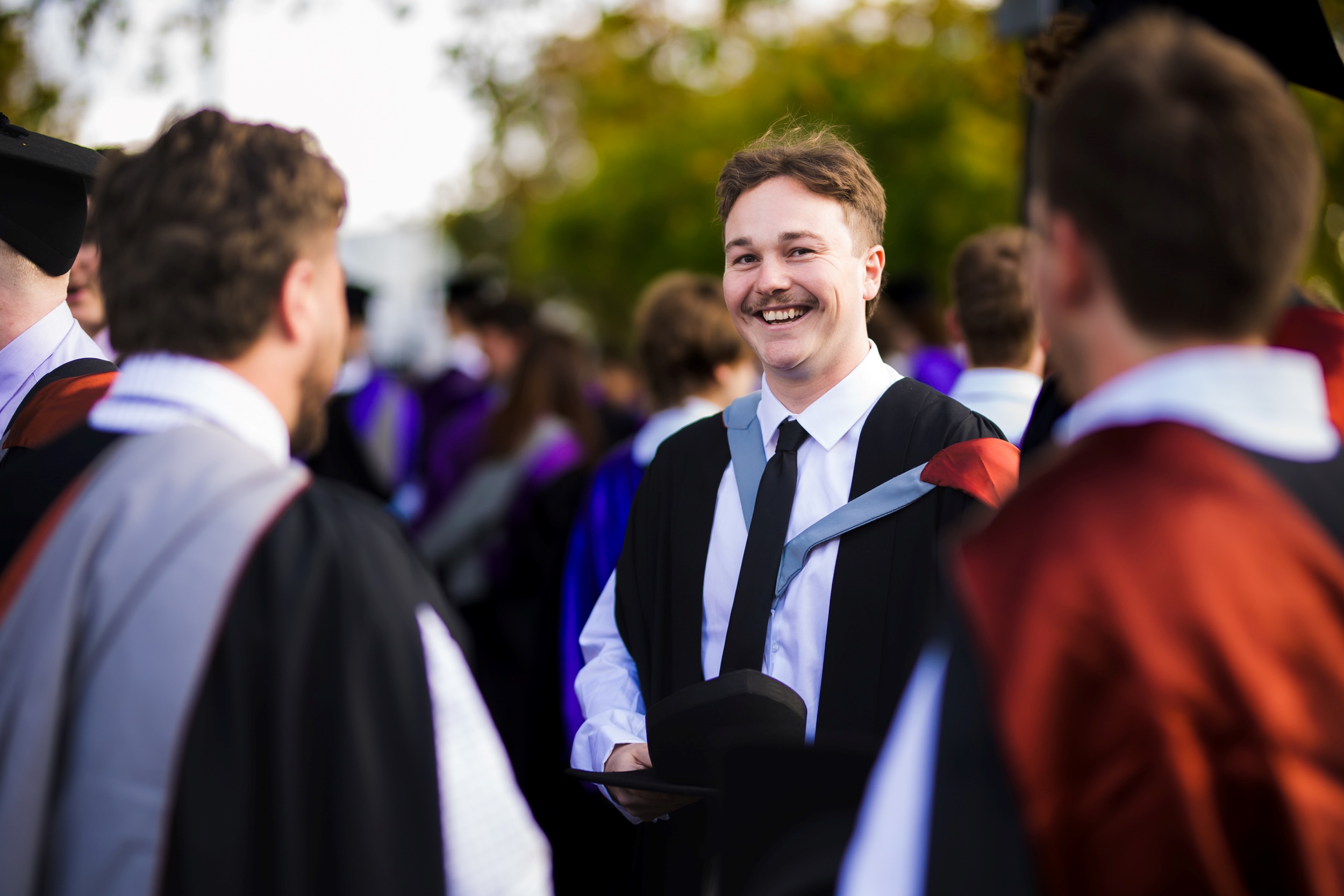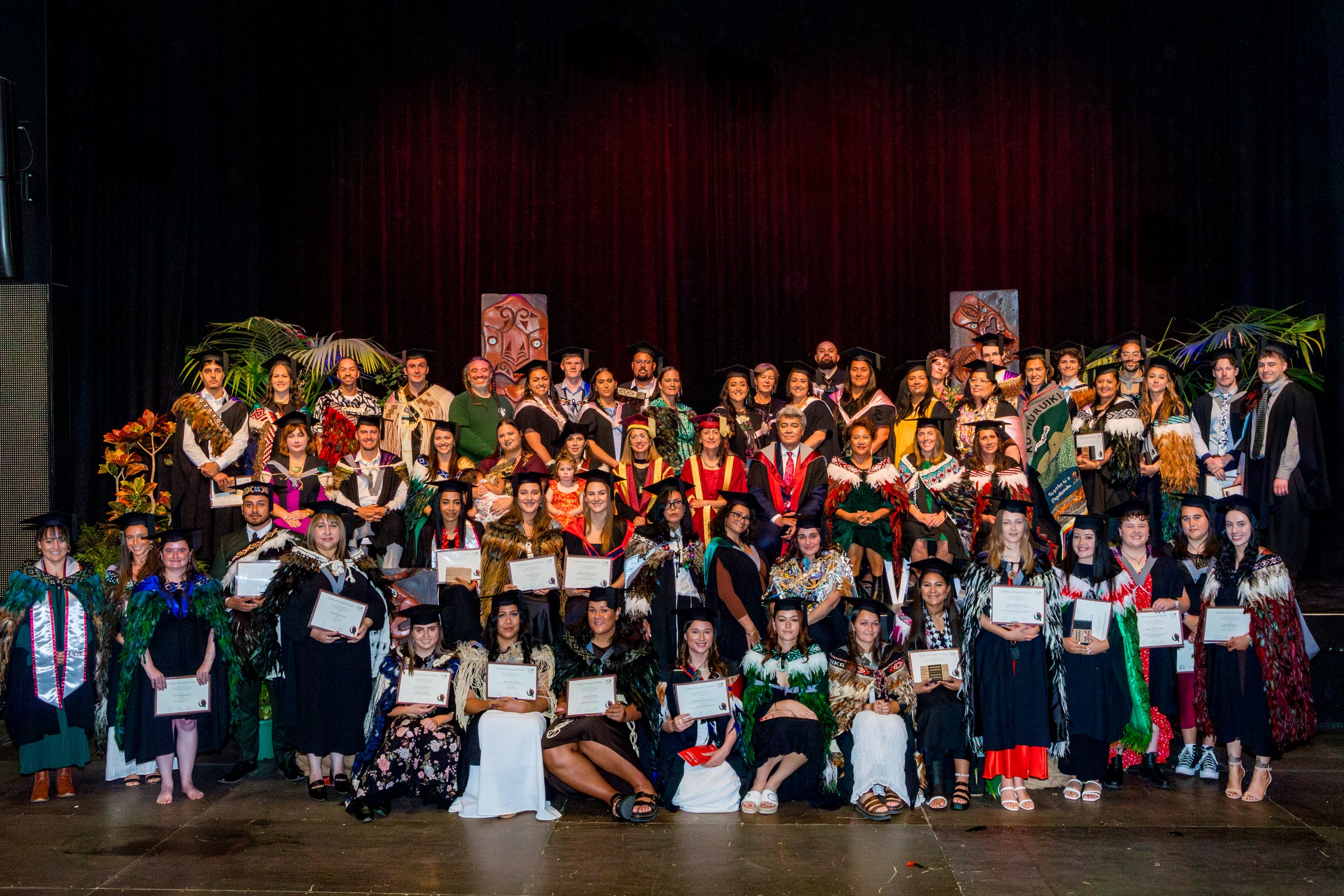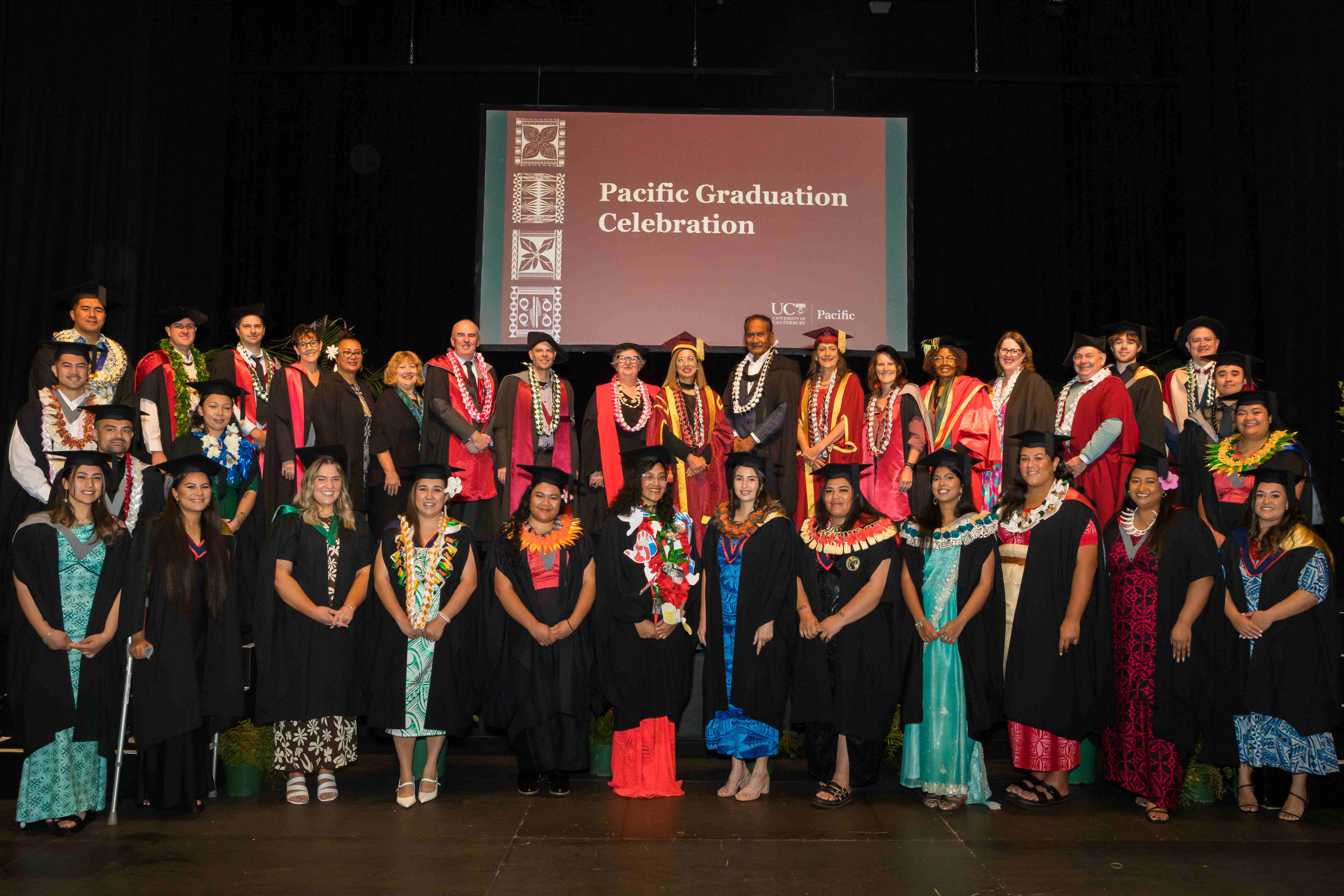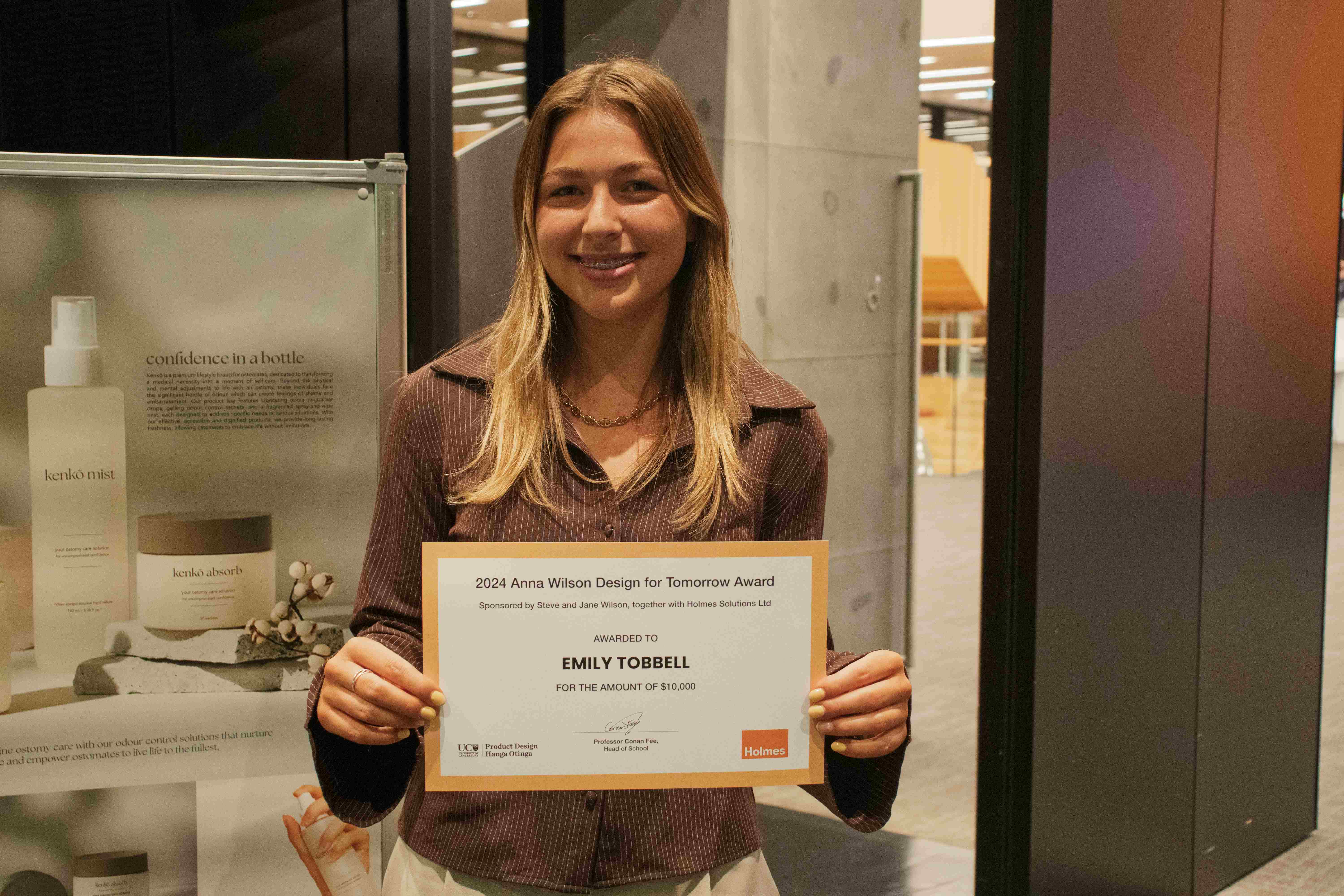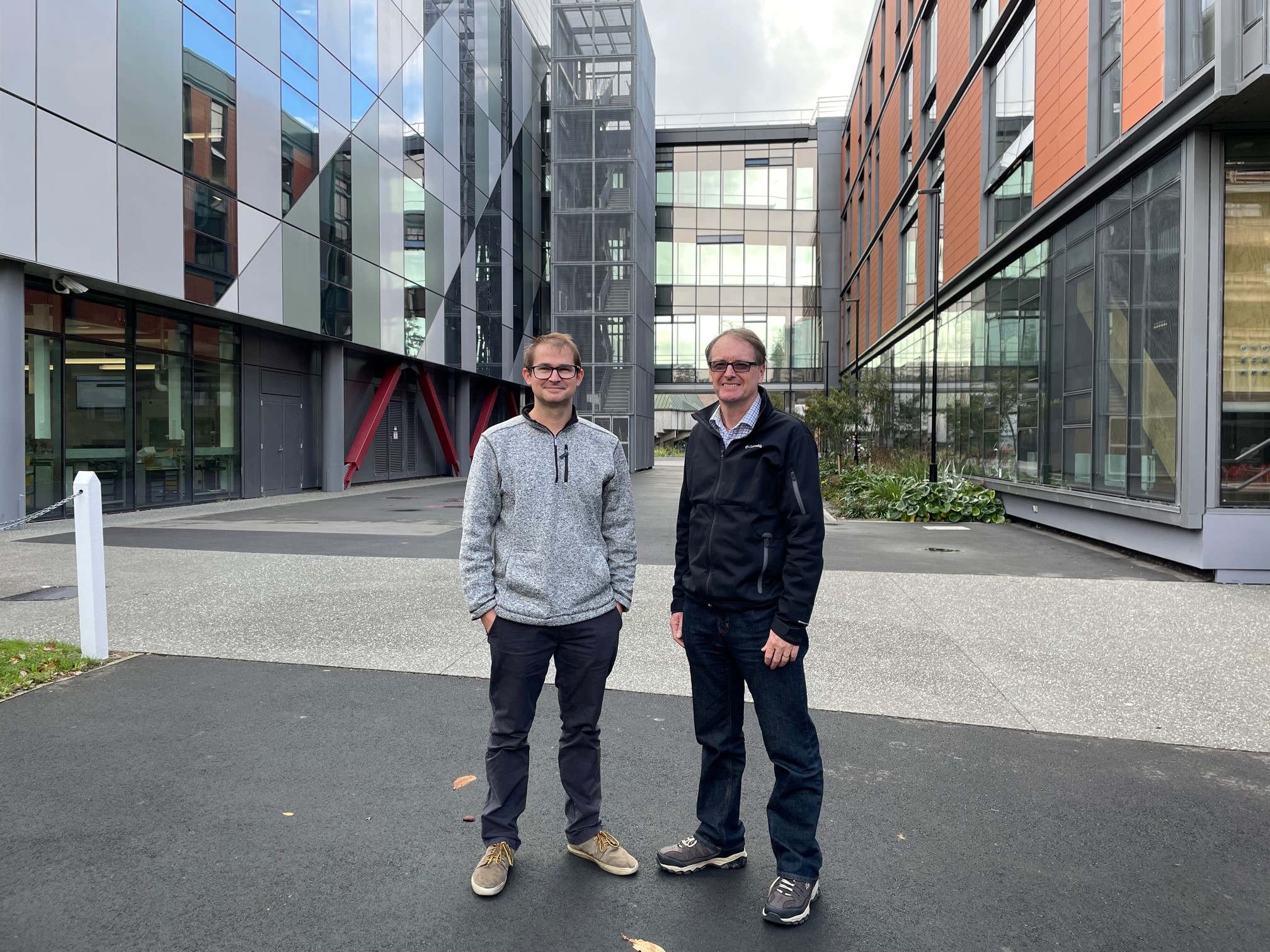Photo caption: Dr Joseph Houghton has achieved his PhD in Education from UC after researching how to amplify Pacific voices in secondary schools.
Dr Joseph Houghton has spent the last five years completing a PhD in Education from Te Whare Wānanga o Waitaha | University of Canterbury (UC), while also working full-time and parenting five children with his wife Chelsea.
“This thesis is a gift to the teachers and leaders I have worked alongside, the Pacific community at Shirley Boys’ High School who taught me so much, and especially to my own children, who I now have much more time to spend with!” he says.
Dr Houghton will cross the stage at a UC graduation celebration on 10 April and a few days later, he’ll be joined by friends and family for a party at a Fale Eke Pacific hub in Christchurch marking both his academic achievement and his 38th birthday.
Dr Houghton, who has Cook Island, Tahitian and European ancestry, focused his thesis on amplifying Pacific voices in the context of Canterbury secondary schools. His commitment to advocating for and supporting Pacific high school students has been a constant theme in his career.
He taught English and Classics at secondary schools for 15 years, including over a decade at Shirley Boys’ where he became heavily involved in Canterbury Polyfest, an annual cultural festival for Pacific secondary school students. He is now Principal Advisor for Secondary Transitions at the Ministry of Education where he focuses on supporting student achievement across the Canterbury region.
Shirley Boys’ High School students and parents of Tongan, Samoan, Fijian and Cook Island backgrounds were the main participants for Dr Houghton’s research, but he says there were connections to many other schools, teachers and community leaders in Christchurch.
He feels strongly about the importance of researching Pacific experiences and meeting the educational aspirations of Pacific learners. “I’m a Pacific person, and there’s not just one type of Pacific person, not just one Pacific voice. It’s important for our education system to actively listen to those voices and engage with them.”
Dr Houghton used talanoa (a Pan-Pacific term describing reciprocal dialogue) and tīvaevae (a Cook Island research method) approaches with his research, collaborating closely with his participants and weaving together their diverse perspectives.
He says the benefits of using Pacific research methodologies in this type of research cannot be overstated. “They allowed me to shape the research in a way that created maximum benefit for the participants and their communities. They also shaped me as a researcher.”
Dr Houghton says he wouldn’t have been able to finish his PhD on top of work commitments and parenting five children aged between eight and 15 without the support and proofreading skills of his wife, who is now working on her own PhD.
He had originally planned on only completing a master’s degree but was convinced to do a PhD by the late UC Professor Angus Macfarlane, who specialised in education research focused on Māori students, and was a strong influence and mentor.
“One of the things we’ve got to really remember is Pacific communities are resilient. We can propel and sustain them through a lot of the challenges that they might have. We’re a growing population in Canterbury so it’s important to carry out research that’s relevant to Pacific learners and their communities,” Dr Houghton says.







